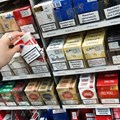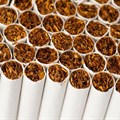Cigarette prices have decreased sharply from their highly inflated levels during the sales ban, but are substantially higher than their pre-lockdown levels. The average retail price of cigarette brands produced by the multinationals is nearly 5% higher than before the sales ban, while the average retail price produced by the local manufacturers is 30% higher.

Irina via Pexels
These are some of the findings of a recent study, conducted by the Research Unit on the Economics of Excisable Products (Reep), based at the University of Cape Town (UCT). The research was based on an online survey of nearly 4,000 people, conducted in September 2020. Respondents to the survey had been participants in a previous Reep survey, and were contacted with their consent through social media and Moya, a data-free messaging platform.
The study was conducted by Professor Corne van Walbeek, the director of Reep, and two colleagues, Kirsten van der Zee and Sam Filby.
High percentage of relapses
About 17% of respondents indicated that they had quit smoking during the lockdown. However, about half of those who had quit had started smoking again by the time they completed the survey.
“It is unfortunate that such a large percentage has relapsed. It shows how addictive smoking is. Most smokers regret that they started smoking and want to quit. Research from around the world shows that most people try multiple times to quit smoking before they are ultimately successful," says Van Walbeek.
Brand switching and product substitutions
Nearly 40% of respondents indicated that they used other tobacco products during the sales ban. The most popular substitute product was roll-your-own tobacco, followed by electronic cigarettes, heated tobacco products and pipe tobacco.
During the period of the sales ban, many smokers switched cigarette brands, as they were unable to find their regular brand. About two-thirds of respondents who continued to smoke reverted to their pre-ban brand after the sales ban was lifted, but about one-third of respondents had switched to other brands.
Of the respondents who switched, 36% switched from a multinational brand to a local brand, 30% switched from one multinational brand to another multinational brand, 23% from a local brand to another local brand, and only 11% switched from a local brand to a multinational brand.
The multinationals are British American Tobacco, Japan Tobacco International and Philip Morris. The largest local companies are Gold Leaf Tobacco, Carnilinx, Best Tobacco, Pacific Tobacco, Amalgamated Tobacco and Afroberg Tobacco.
Even though the multinationals clawed back most of the market share that they lost during the lockdown, they are in a substantially weaker position now than they were before the sales ban. Their market share dropped from about 75% pre-ban to 66% post-ban amongst those in the sample. In contrast, all of the local companies experienced sizable increases in their market shares.
Before the sales ban, many of the local companies’ cigarettes were sold at prices which did not cover the excise tax and the VAT on those products. The average pre-ban price was less than R20 per pack of 20 cigarettes. After the lifting of the ban, the lowest average price for a local tobacco company is R23.60 per pack. Whether the higher post-ban prices of these products reflect greater tax compliance or simply larger profits is not known.
Public health
However, from a public health perspective, an increase in the price of cigarettes is a positive development, says Van Walbeek. “Research from South Africa and around the world clearly shows that increases in the retail price of cigarettes reduce consumption, as some smokers are encouraged to quit, and young people are discouraged from starting smoking.
"The fact that very cheap cigarettes are becoming scarcer is also a positive public health development, as smokers don’t have the option of substituting to cheaper cigarettes. When the price of their brand of cigarettes increases, they have a stronger incentive to quit.”
In the report, Reep recommends that government increase the excise tax on tobacco products at the earliest opportunity. “The pricing strategy of the tobacco industry clearly shows that they can increase their revenues by increasing the price. The government can also increase their revenue, and reduce cigarette consumption, by increasing the excise tax on cigarettes. This will be a win for public health and a win for our severely constrained fiscus,” adds Van Walbeek.
Illicit trade
An important proviso is that the South African Revenue Services and the enforcement authorities reduce the illicit trade in cigarettes. The illicit market was already substantial when the sales ban was imposed. The sales ban is likely to have entrenched some of the distribution channels for illicit cigarettes.
“The World Health Organisation’s Protocol to Eliminate Illicit Trade in Tobacco Products was created to support countries in their efforts to reduce the illicit trade in cigarettes. South Africa should ratify this treaty and implement its provisions. South Africa should impose a track and trace system, completely independent from the tobacco industry, that allows the authorities to exercise more control over the movement of cigarettes. This will go a long way in reducing the illicit trade in cigarettes," concludes Van Walbeek.




































